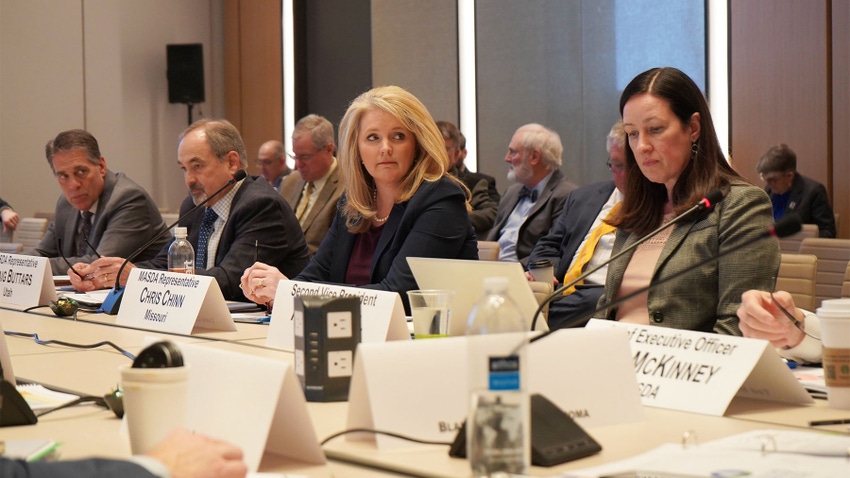March 22, 2024

In February, I had the opportunity to spend time in Washington, D.C., attending the National Association of State Departments of Agriculture Winter Policy Conference, where my counterparts from states across the nation hear from NASDA leadership, USDA officials and industry leaders.
Some years, I don’t attend the conference because the Missouri Legislature is in session, and it is important to be in Jefferson City. I need to be available for hearings or other discussions with our statewide elected officials.
This year is different. I am honored to serve as president of the Midwest Association of State Departments of Agriculture, a regional subset of NASDA.
MASDA is made up of 14 states, from the Dakotas to Oklahoma and Ohio to the east. Our Midwest region has different types of agriculture, no doubt, but there is also quite a bit of similarity.
As president, I sit on the NASDA board of directors and officiate our regional meetings, including the regional meeting held during the Winter Policy Conference. We have a great group of leaders who work together to help shape policy and decisions for farmers and ranchers in our collective states.
Dealing with dicamba ruling
While at the meeting, the U.S. District Court for the District of Arizona released the decision to nullify the registrations of three dicamba herbicides.
This ruling is detrimental to farmers who have already made planting decisions for 2024, including buying their seed and crop protection technology. The decision to deny this crop protection tool would be costly to many producers in our state and across the country.
Our Midwest region, along with many other states, began working on a response.
Letters, phone calls and email messages to the Environmental Protection Agency made a difference. Within days, EPA issued an existing stocks order to allow for the sale and distribution of dicamba products that were already in the possession of growers, or in the channels of trade before the Feb. 6 court ruling.
Many agriculture leaders expressed their appreciation for the EPA existing stocks order. I join them in saying that we appreciate EPA for hearing the concerns of the farming community and addressing them quickly. If EPA did not step in quickly, producers may have faced financial risk.
Interactions with policy influencers
You often hear me talk about the importance of our footprint in the state Capitol building and our relationships with statewide officeholders. Conversations with Missouri’s national delegation are also critical to make sure our farmers and ranchers are getting the same fair shake and the same piece of the pie as producers in other states.
While we were in Washington, D.C., state directors, secretaries and commissioners of agriculture also visited Capitol Hill for face-to-face discussions with policymakers. As you might expect, much of the discussion centered around the farm bill.
Chris Klenklen, Missouri Department of Agriculture deputy director, and I had great visits with House and Senate members, including Missouri Sen. Eric Schmitt and Arkansas Sen. John Boozman, the ranking member of the Senate Agriculture Committee. Those discussions are so important, as we carry the messages of Missouri agriculture to Capitol Hill.
Show-Me State hospitality
In June, MDA will host the MASDA regional conference in the St. Louis area, where attendees will hear from national speakers and discuss policy that affects all of our states.
I look forward to having my counterparts in the Show-Me State for a few days. I learn a lot visiting their states, and I am excited to welcome state leaders here and show some of the great things happening in Missouri agriculture.
At least some portion of the grain harvested in each of these states makes its way down the Missouri and Mississippi rivers, headed to export markets across the globe. No doubt there will be discussions about the river system and the impacts of a two-year drought in the region.
The St. Louis region is also the plant science mecca, so it is only natural that our agenda includes a conversation about the plant science research being done there.
We plan to show them the diversity of Missouri agriculture and the many great ways our agriculture community comes together to benefit our farmers and ranchers.
Chinn is the director of the Missouri Department of Agriculture and lives on a diversified farming operation in northeast Missouri.
About the Author(s)
You May Also Like




